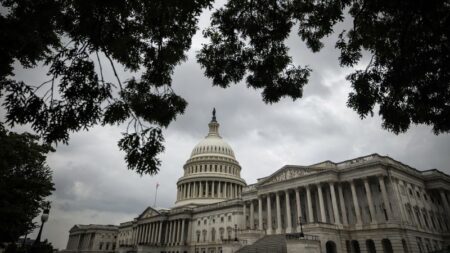Former British Prime Minister David Cameron has faced severe criticism from Julian Smith, the ex-Northern Ireland Secretary and Conservative MP, regarding his management of the Brexit process. Smith recently described Cameron’s approach to the 2016 Brexit referendum as “extremely cavalier,” emphasizing that the situation was treated with a lack of seriousness akin to “some sort of Eton game.” This comparison underscores Smith’s view that the referendum was a fundamental question facing the British public, one that required careful thought and consideration rather than a simplistic, playful attitude.
Julian Smith, who served as the chief whip from 2016 to 2019 during Theresa May’s tumultuous tenure as Prime Minister, voiced his discontent over Cameron’s decision to hold the referendum after being pressured by Eurosceptics within his party. In an interview on BBC’s Red Lines podcast, he criticized the lack of a well-structured proposition that addressed both potential outcomes of the vote. Smith articulated the need for clarity regarding the implications of either decision to leave or remain in the European Union (EU), especially given the myriad complex issues surrounding the UK-Ireland border that would arise from such a monumental decision.
Reflecting on his own involvement within the Conservative Party, Smith revealed that he initially joined due to Cameron’s dynamic leadership. However, he expressed deep disappointment in how the fundamental Brexit question was presented to the electorate. He lamented that key issues, particularly those impacting the border between Northern Ireland and the Republic of Ireland, were not adequately considered prior to the referendum. In his view, the referendum’s handling neglected the gravity of the topic, leading to dire ramifications in British politics.
In the aftermath of the 2016 Brexit vote, which resulted in a decision to leave the EU, Cameron stepped down from his position as Prime Minister. At that time, he justified the referendum by suggesting that the absence of a national vote on EU membership for 40 years had become increasingly toxic to British politics. His rationale was that promises had been made for referendums, and public frustration over the lack of action on this matter necessitated a vote.
Smith’s criticisms extended beyond Cameron, addressing how the subsequent Conservative leadership under Theresa May struggled to navigate the complexities of Brexit. He highlighted how the issues surrounding the Northern Ireland border, crucial to both the UK’s integrity and peace agreements, should have been foreseen and adequately addressed during the referendum campaign. Instead, the UK found itself grappling with answers to these pressing questions long after the vote, leading to further politicization and polarization.
As the debate continued following the referendum, moderates within both the Leave and Remain camps transitioned to more hardline positions, resulting in what Smith referred to as a “pretty disastrous period” for British politics. Following May’s resignation in 2019 due to her failure to pass Brexit legislation through Parliament, Boris Johnson took the helm as Prime Minister, during which time he appointed Smith as Northern Ireland Secretary. Smith played a pivotal role in restoring the governmental framework at Stormont, but was dismissed shortly thereafter amid policy disagreements.
Regarding current political discussions, Smith addressed the prospect of a border poll for a united Ireland, suggesting that the conditions are not conducive for such a referendum. Rather than pursuing constitutional debates, Smith urged politicians in Northern Ireland to concentrate on pressing social issues, such as healthcare and economic development. He underscored the necessity for actionable policies that genuinely improve the lives of the constituents rather than getting mired in constitutional discussions that distract from critical domestic challenges.
In sum, Julian Smith’s remarks highlight a significant critique of David Cameron’s Brexit strategy, signifying broader concerns about the political miscalculations that defined this pivotal period in British history. The commentary sheds light on the ongoing complexities surrounding Brexit, particularly its impact on Northern Ireland and the pressing need for informed political decision-making moving forward.











